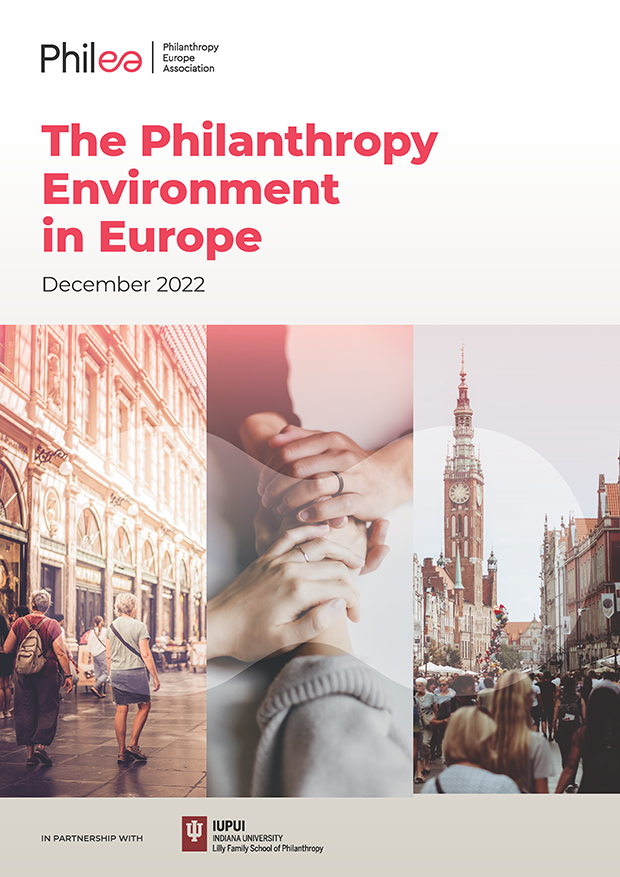Indiana University Lilly Family School of Philanthropy and Philanthropy Europe Association’s new release sheds light on the philanthropy landscape in Europe
Brussels, Indianapolis – Today Indiana University’s Lilly Family School of Philanthropy and Philanthropy Europe Association (Philea), released a briefing on the philanthropy environment in Europe at the occasion of EuroPhilantopics, a meeting where philanthropy engages with policymakers in Brussels. Four key findings emerged from the research:
Governments, for the most part, want to stimulate philanthropy: Across Europe, many countries provide a range of tax benefits to both donors and recipient organizations. The political landscape for philanthropy has remained relatively stable in Europe between 2018 and 2020. However, there have been both positive and negative developments and the current relatively positive attitude towards the sector cannot be taken for granted.
Laws are sometimes slow to respond to the desire to enlarge the toolbox: While the sector is testing out new digital and impact investing tools on the programme and asset allocation side, existing laws are sometimes too restrictive in keeping up.
More collaboration within philanthropy and across sectors. Societal challenges are increasing and the sector is responding with more cooperation and network building within the philanthropy sector but also across sector with governments, the business sector, and within the wider non-profit sector.
Significant barriers continue to burden the operating of philanthropic organisations and donors: Both at Member State and EU-level, additional reporting requirements designed to address money laundering and terrorism financing continue to create burdens for philanthropic organisations. Foundations and donors also face barriers when operating across-borders: a single market for philanthropy does not yet exist.
A stable economic and socio-cultural environment (2018-2020): The economic environment from 2018 to 2020 was significantly affected by the Covid-19 pandemic and the government responses to it. Despite very different histories with philanthropy across Europe, the socio-cultural environment for philanthropy remained stable in 2018-2020. The general desire to participate in philanthropy is generally well-established in Europe. It remains to be seen how the war in Ukraine and energy crisis will impact this.
This briefing, which puts into context the findings of the 2022 Indiana University Global Philanthropy Environment Index and Philea’s 2022 Comparative Highlights of Foundation Laws, will help national and European sector efforts to advocate for a more favourable operating environment and a single market for Philanthropy.
***END***
About Lilly Family School of Philanthropy:
The Indiana University Lilly Family School of Philanthropy is dedicated to improving philanthropy to improve the world by training and empowering students and professionals to be innovators and leaders who create positive and lasting change. The school offers a comprehensive approach to philanthropy through its academic, research, and international programs and through The Fund Raising School, Lake Institute on Faith & Giving, the Mays Family Institute on Diverse Philanthropy and the Women’s Philanthropy Institute. For more information, visit philanthropy.iupui.edu
About Philea:
Philea nurtures a diverse and inclusive ecosystem of foundations, philanthropic organisations and networks in over 30 countries that work for the common good. It unites over 10,000 public-benefit foundations that seek to improve life for people and communities in Europe and around the world. Philea’s purpose is to harness philanthropy’s immense multidimensional potential, including in the field of climate.

